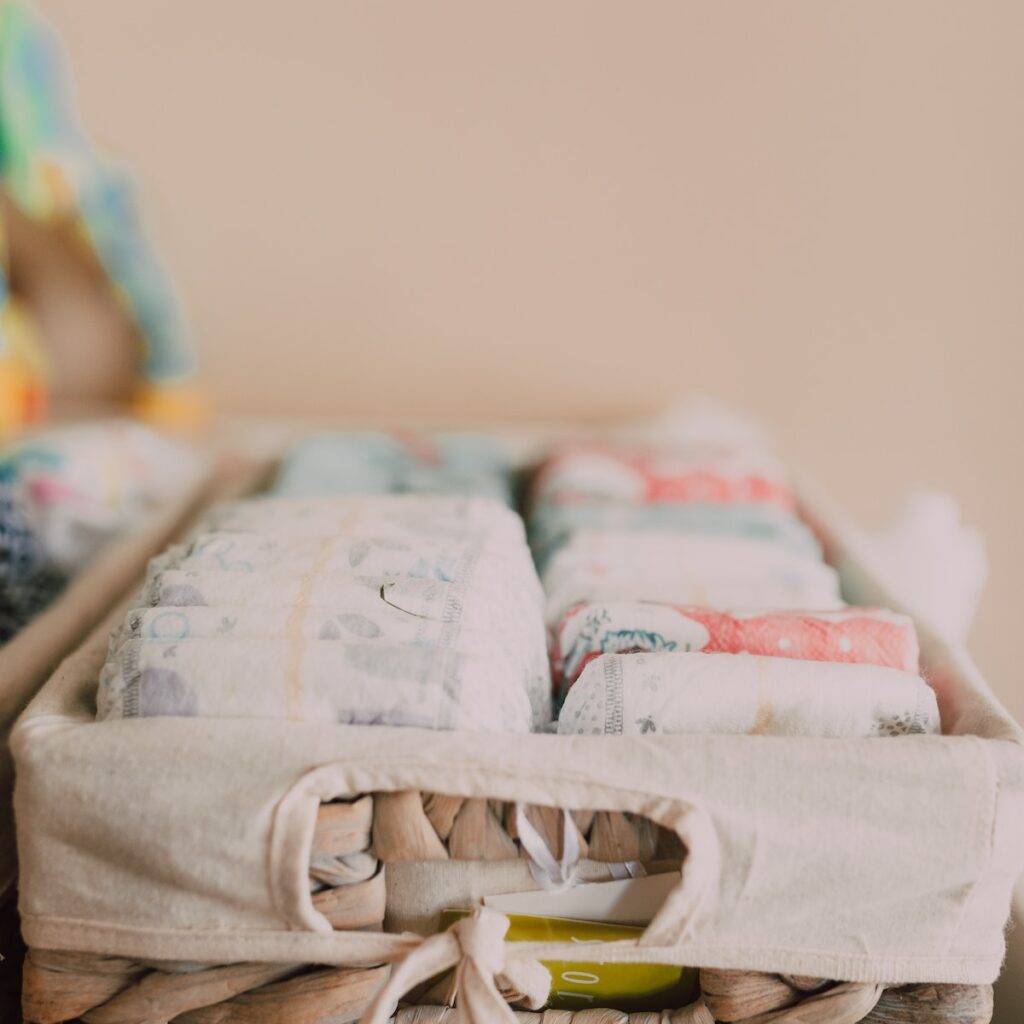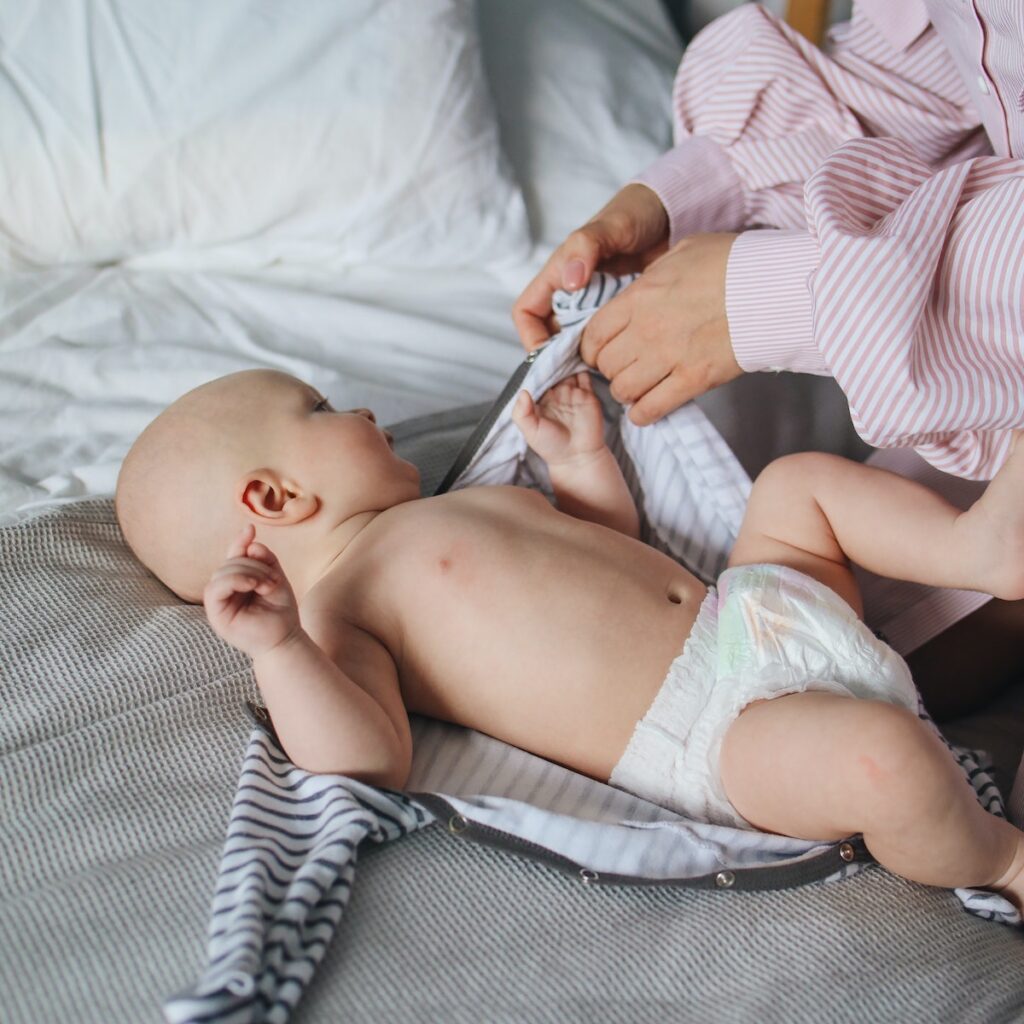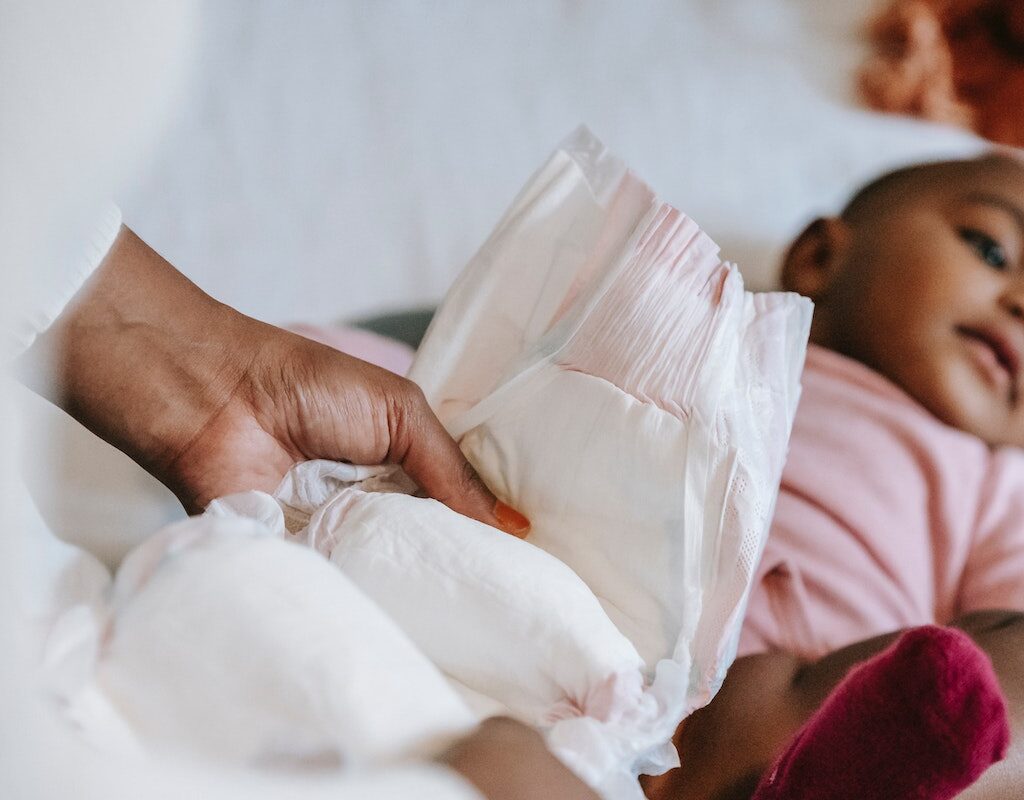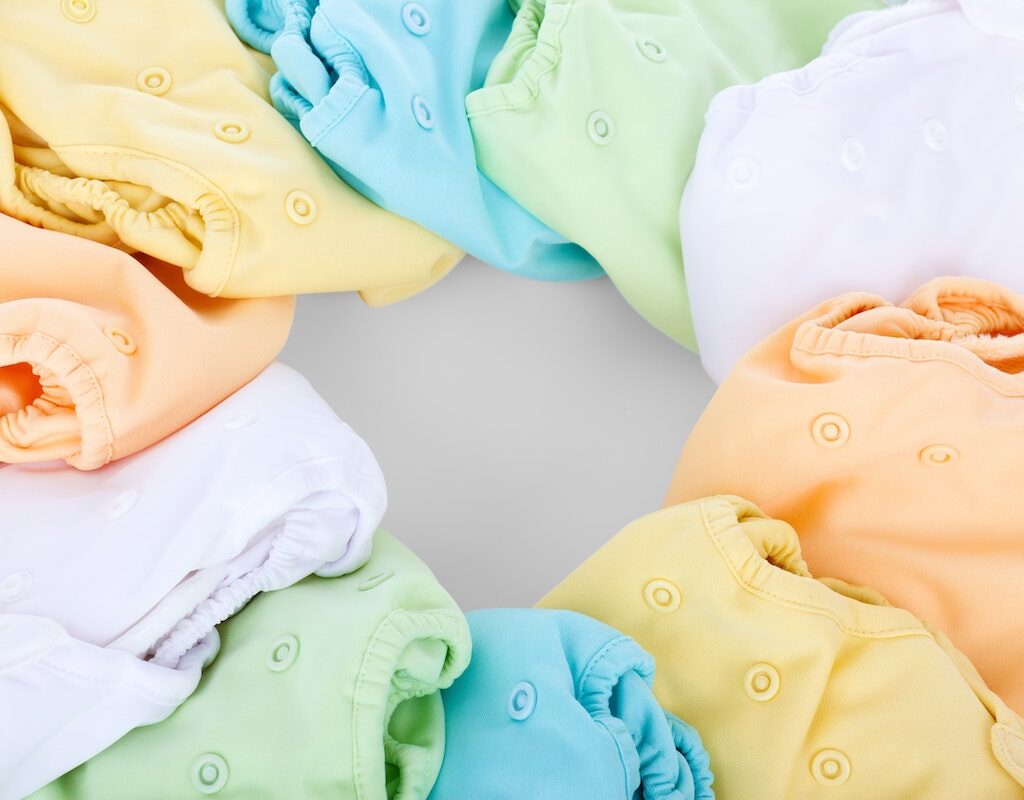
Diapers have been trendy among new parents for the past few decades. There is no doubt that diapers have become a boon for today’s generation as they are highly convenient and have made life more simple. Diapers are super easy to use as there is no hassle of washing them, they are readily available, and of course, there is no worry of leakage.
Using 24 hours a day for more than two years can have adverse effects being in contact with the baby’s reproductive organs and the long-term effects it causes on the surroundings. Its shocking to know that most parents are unaware of these adverse effects. As parents, we have to be mindful of the merits and demerits of using diapers. Our responsibility as parents is to look after the baby’s health and well-being.
Side effects of Using Diapers for Babies
Allergic Reactions:
Babies, especially newborns, have very soft and gentle skin, and anything harsh may harm their skin. Diaper manufacturing companies often use leakproof polymers, superabsorbent polymers, scented chemicals, synthetic fibres, dyes, or other chemical products that enhance the diaper absorbency and cause skin allergies in the baby. These harsh chemicals can harm your baby’s sensitive skin and cause allergies. Always try to choose a soft diaper made of skin-friendly materials.

Skin Rashes:
Diaper rashes are widespread in babies. The leading cause of diaper rash is prolonged and increased exposure to wetness/moisture against the skin. This moisture in the diaper is a perfect breeding opportunity for bacteria. This can also cause the baby’s skin to become red, sore, tender and rub against the skin repeatedly when a diaper is left on for too long and rubs against the skin repeatedly. Make sure to change your little one’s diaper regularly every 2-3 hours to minimize the risk of rashes.
Toxicity:
On average, a baby uses 7-8 diapers daily, which means that the diaper is used for almost 24 hours a day. Diapers come in direct and continuous contact with their sensitive skin, so they can quickly enter your baby’s system if any toxic chemicals are present inside the diapers. Dioxins, VOCs, fragrance, Tributyl-tin (TBT) and sodium polyacrylate are some of the most harmful chemicals in diapers. Therefore, its always advised to use diapers intermittently and allow your little one to have free time or no diaper time.
Difficulty in Toilet Training:
Wearing diapers most of the time may cause a problem in toilet-training your baby. Letting your child wear diapers all day will not allow your baby to feel peeing and pooping, as it is too convenient for the baby and the parents. Many children show signs of being ready for potty training between 18 and 24 months. Potty training is an essential step for a child to take as It teaches them to become more independent and hygienic. It’s always better to start potty training as early as possible.

Urinary Infections:
Diapers’ continuous use keeps their genital areas more wet and warm. One important thing that makes disposable diapers so great is the substance that prevents the pee from leaking out. Still, this same substance hinders the easy flow of air inside your baby’s diaper and creates an apt condition for bacteria and other germs to breed. The continual rubbing of the diaper will also irritate the skin; as a result, your baby’s skin will turn red due to irritation, and the baby will be sore and uncomfortable. This is more common among baby girls due to the anatomical peculiarity. Thus, it’s crucial to check your baby’s skin and diaper every hour and replace it the minute it is full.
Expensive:
On average, your baby may require about eight to ten diapers in a day and, in some cases, even more. This count may create a big hole in your pocket for some families. Diapers are costly, and the cost varies according to the various varieties present in the market. Many parents spend a lot of money just buying diapers only.
Not Environment-friendly:
Disposable diapers are considered environmentally hazardous products as they harm the environment through their manufacture and disposal. Many diapers get disposed of in the environment containing plastic, synthetic fibres, and other chemicals. All these are difficult to decompose and pose a threat to the environment. Although some companies are coming up with biodegradable disposable diapers, their accessibility is still limited.

Alternatives to Diapers
It is high time to think of other more hygienic options that are safe for your little ones. Some good options are Cloth diapers, Diaper liners and Eco-friendly Disposable Diapers. These are not only good for your baby’s skin and health but are reusable. There are many different variants of cloth diapers available in the market. A little bit of extra work can be beneficial to keep your little one safe from minor unnecessary health problems.

